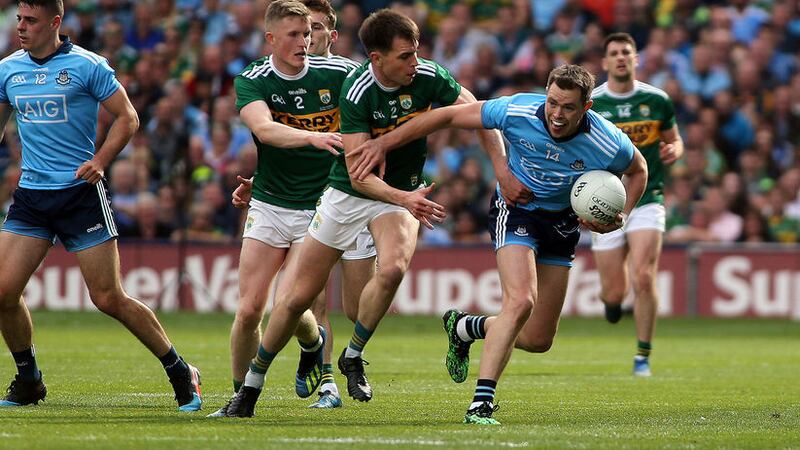INTER-COUNTY games will go first with the All-Ireland finals “no later than” mid-July as part of the GAA’s plans to implement a split season from 2022 onwards.
However, the GAA is also determined to retain the controversial U17 and U20 age grades, rather than reverting to U18 and U21 amid criticism of the change.
The association’s fixtures task force has just released its finalised plans, approved by the GAA’s management committee, which have seen a move towards a clean split of club and inter-county activity rather than an overlap.
It would also see the abandonment of the pre-season competitions such as the Dr McKenna Cup, with no inter-county training or games taking place before January 1.
There have been minor changes made to the original proposals for the revamp of inter-county games, although still no final decision has been made on how best to rebalance the provinces into four groups of eight, if that option is chosen.
It is one of two plans on the table, with the other seeing the provincial competitions moved to February/March and the National League in summer as the basis for the Championship.
The original proposal would have seen a number of counties eliminated after the league phase and while that is still the case, all Division Three and Four teams (barring the top sides, who go into the All-Ireland proper) would now enter the Tailteann Cup.
It’s also suggested that the fifth placed team in Division One rather than the fourth placed team in Division Two qualify for the preliminary All-Ireland quarter-finals, so as to ensure “greater reward” for teams in Division One “on merit”.
Rather than redrawing the provincial borders as originally proposed, option two would also see the numbers in each province remain as they are.
Ulster would be played on a basis of two groups, one with five teams and the other with four, while Leinster would have a group of six and a group of five.
This “avoids having to allocate teams to a different province [and] does not impact on the time needed to play these competitions,” says the report.
The GPA, along with the Club Players’ Association, have both come out as broadly in favour of the idea, although the GPA had proposed the All-Ireland series’ run until the end of July.
The task force’s initial report last December had dismissed the idea of a split season, feeling it wouldn’t achieve “sufficient support” but in its updated report this afternoon the force noted that the “positive experience of clubs” during the 2020 season meant it was re-evaluated.
“The advantages identified in the original Report were experienced at first hand by Clubs in July, August and September this year, and the reaction has been significantly more favourable among players, clubs, and the membership generally than would have been expected.
“These included no crossover between the inter-county and club seasons; no interruptions due to the County game; no ambiguity over player availability, and more regularity and certainty in the planning of club fixture programmes.”
The task force holds a strong view that the inter-county games should be played first in a split season, arguing that if club championships to go first, finals would “would likely have to be played as early as May in order to accommodate the subsequent Provincial and All Ireland Club Championships.
“Furthermore, non-championship club competitions are unlikely to thrive once Club teams have exited the championship. By playing the inter county season first, there is significant opportunity for league or non-championship club games to be played in late spring and early summer.”
The report also acknowledges that the question of age grades at inter-county level was “raised on a number of occasions”, but that the ban on allowing U17s to play adult competition has been central to its “greatest strides…in a fixtures context.”
“The Task Force is of the very strong view that there should only be one further inter-county grade between U17 and Senior level.
“If there is more than one inter-county grade between U17 and Senior it will have serious negative impacts on the availability of players to clubs.
“This raises the question of whether the next grade up from U17 at inter county level should be U19 or U20. It is the view of the Task Force that a separate group is assigned to examine the question of U19 or U20 and make strong evidence based recommendations for the Association that achieve a balance between the Developmental imperatives on the one hand, and the suitability of each in terms of the national fixtures calendar on the other.


